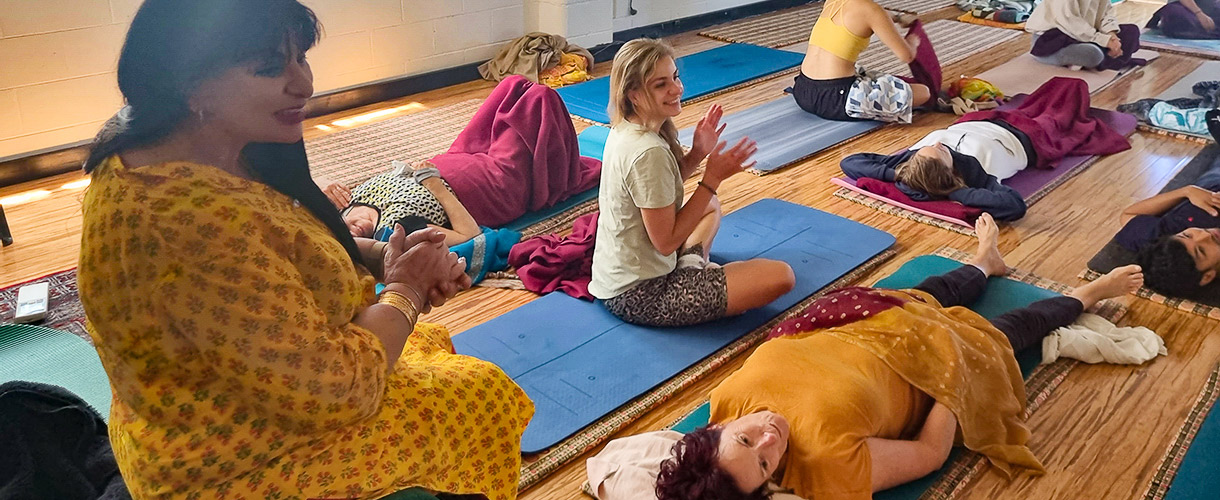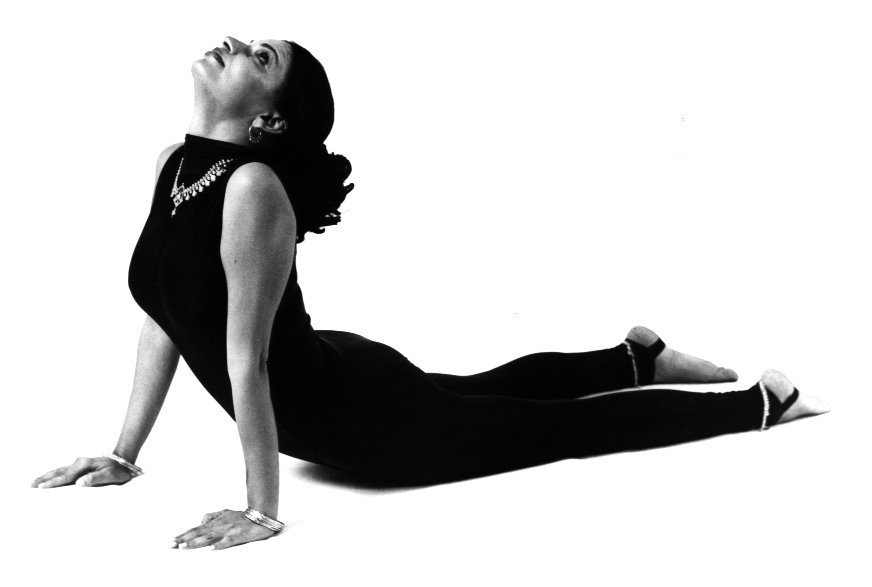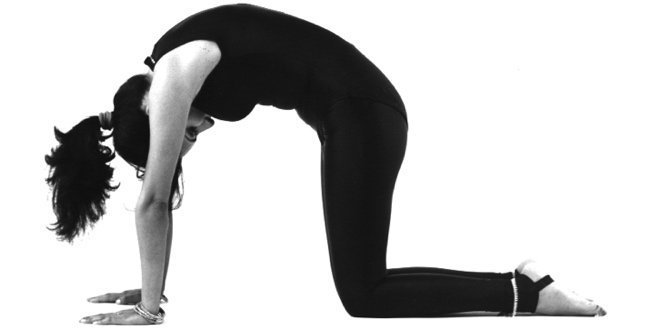Shanti Yoga Classes
Peaceful, sacred, transformational practices for body mind and spirit.
Held at Shanti Yoga Southport Centre & Nirvana Wellbeing Retreat.

The nourishing journey to a healthier, happier life begins here.
Engaging self-love, you are encouraged to change your mind-body's internal environment naturally and experience self-healing and recovery beyond the physical, through the different spheres of your multi-dimensional self.
Healing is achieved by combining meditation, a unique sequence of intentional breathing practices (pranayama), supported stretches and postures (asanas) incorporating innovative, everyday yoga approaches to sacred rest, restoration and wellbeing.
You meet and heal yourself on the mat. The practice is the guru.
Guided awareness, breathing, stretching, classical postures, modifications, sequencing and safety features are incorporated throughout the non-competitive environment of a class. This makes them appropriate for beginners, safe if you are ill, injured, menopausal, and also are pre- and post-natal safe.
You are invited to practise at a level that is appropriate to you, in a comfortable setting. No previous yoga experience is needed. Anyone can attend a class and benefit from it, regardless of how new or experienced you are.
Classes are multilevel, fully guided, and beginners are able to attend all of the classes because of the way that Shanti Yoga is designed and taught. Cushions, pillows, blankets, props and chairs are available to support you during practice. With the transformative power of Shanti Yoga you relax, have a chuckle or two, smile inwardly, and come home to yourself and your deep, inner peace. Our centre is a sanctuary of inclusivity, accessibility and support, embracing individuals of different backgrounds, abilities and experience levels who embark on a journey of self-discovery and wellbeing.
Practising regularly together with experienced, dedicated and inspiring teachers, over a period of time, enables you to systematically develop and grow as a human being, and deepen your understanding of life.
We want you to know you belong here. Our beautiful centres provide an opportunity for you to attend regular classes with an amazing community of like-minded people who you can interact with at our lunches, cinema screenings, discussions, retreats and social events.
The beauty of Shanti Yoga is that it introduces you to yourself at all levels. You will help boost your nervous and immune systems, improve overall pain relief, help recover from lack of sleep, soothe headaches and migraines, lower blood pressure, release endorphons and anti-ageing hormones, strengthen your back, joints and so much more.
A combination of styles of yoga are taught in each class. These include • Yoga Energy • Healing and Restorative Yoga • Shanti Yoga flow (vinyasa) • Gentle Hatha Yoga, together with • Intentional yoga breathing, which works at building levels of life-force (prana), invigorating the immune system, healing the nervous system and strengthening the mind-body. The shorter (55min classes) Stretch and Rest classes include Yoga Nidra (conscious yoga relaxation) while the longer and back-to-back classes extend the session for asana practice, with deep rest Yoga Nidra and Meditation at the beginning and end, helping your body heal itself. The combination of philosophy with practice is a hallmark of Shantiji’s back-to-back sessions. Listening to Shantiji's guided instructions is a healing experience in itself.
The needs of the body are different in the morning of your life and in the evening. Morning practice uses posture and breath in specific ways to energise and strengthen the entire system for the wear and tear of each day. Evening practices relax the entire mind and body to heal and repair from the wear and tear of the day.
If you wish to be free from pain, stress and trauma in your body, come prepared to for authentic practice, by agreeing to be a student, accepting the soft, nurturing style of classical Shanti yoga, and to practice with awareness and presence. Awakening your consciousness, you connect with your mind-body which allows you to free yourself from unwelcome emotions, thoughts and habits that drain your energy.
The power to transform your life lies within you.
Meet yourself, and encounter the infinite value within you.
Check out how you feel after!


SHANTI YOGA STUDIO FACILITIES
Fully equipped studio
Non-slip Yoga mats – no hire-fee
Cushions and Pillows provided
Blankets, Towels, Filtered water
Air-conditioned studio
Natural bamboo timber floor in yoga studio
Toilets that you can change in
Shoe rack and clothes hanging area
Lounge and waiting area
Shanti Yoga - AyurPure shop
Massage therapy rooms
Delicious, weight loss, vegan, lunchbox meals $20
Yoga teaches discipline – the discipline of freedom. It’s practice encompass eight limbs. These are social (yama) and personal (niyama) disciplines; body (asana), breath (pranayama) and sensory (pratyahara) disciplines; and the mind disciplines of concentration (dharana), meditation (dhyana) and equanimity (samadhi).
Yoga teaches us to live in contemplation of the body, feelings, mind and mind objects as a way of disentangling ourselves from the tendrils of karma in order to find liberation. Using the process tools of yoga postures, breath, sound vibration and affirmations (mantra), yoga relaxation (nidra), concentration and meditation make disentangling ourselves from our beliefs and assumptions, projections, aspects of our personality, disidentification and centering not only more manageable but also fun and enjoyable. Yoga is about practice. In this way, it’s much more about how than what.
The physical practice for its own sake is not the be-all, end-all of yoga and must not be taken out of its original, holistic, integrated context. Whilst asana is the centerpiece of most Yoga practice, Yoga is not just exercise and poses! Yoga teachers and students must expand their idea of what yoga is so that you do not consciously or subconsciously encourage aggressive practice.
Would you like to learn how to prepare the healthy and delicious food that Shantiji and others yoga teachers and students eat daily? In this connection, we offer an all-day, hands-on workshop where you will learn to prepare and eat yogic breakfasts, lunches and dinners. You’ll benefit from the Health Institute Australia’s 40+ years of research, experimentation and practice with nutrition, vegetarianism, Ayurveda, alkaline and nutrient therapies. Menu preparation will respect your personal Ayurvedic (the science of life) body-type and dietary restrictions.
Just start with what you know and can do easily. Through the process of the lessons you will discover how you can move and feel better. By becoming aware of what is easier, more connected, stronger and more efficient, you can go beyond your current levels of performance. The effects of Shanti yoga are both generalised throughout your system and are also specific. People at all levels of ability can improve from where they started. You will learn to make the impossible possible; the possible easy; and the easy, elegant.
